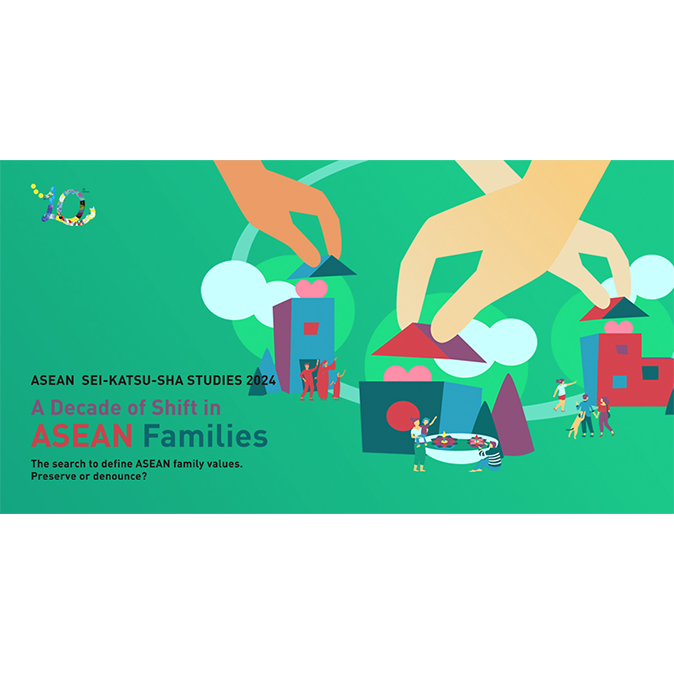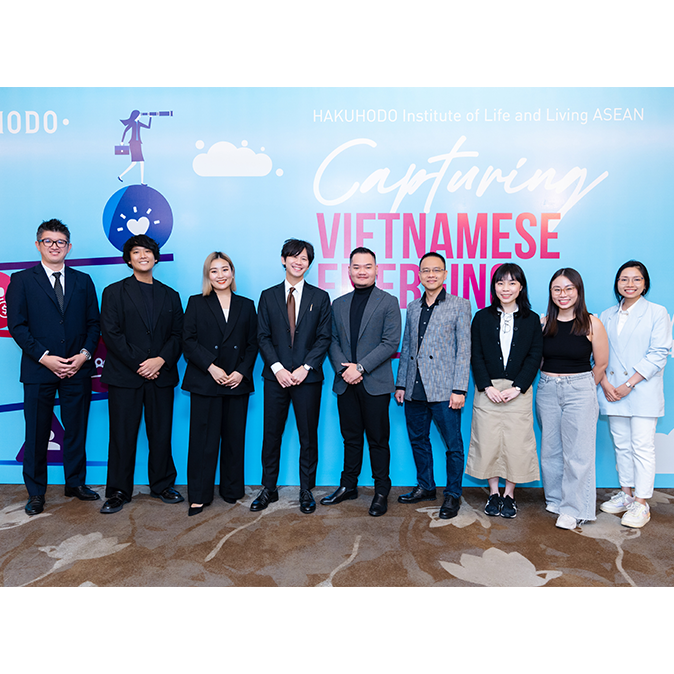- Events
- Research
- Viewpoints
- HILL
What makes HILL ASEAN unique and key findings on the Indonesian family
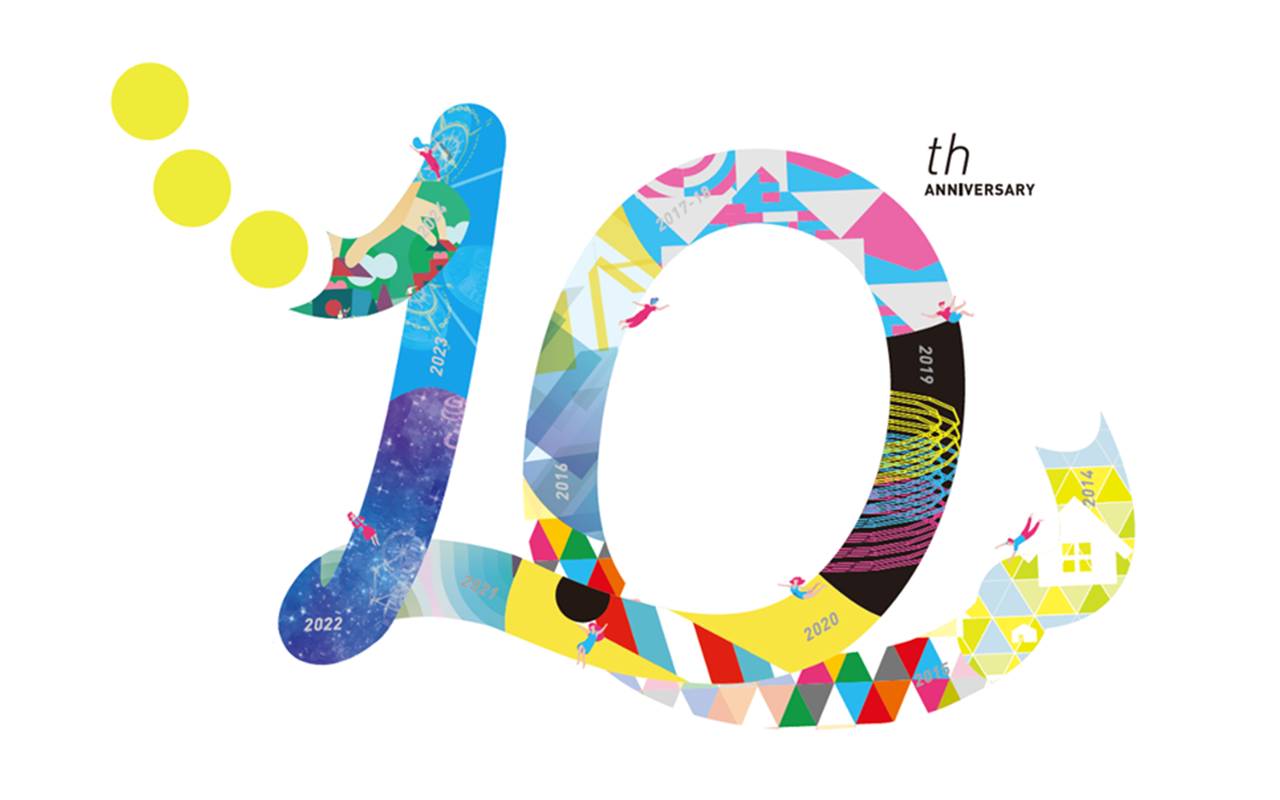
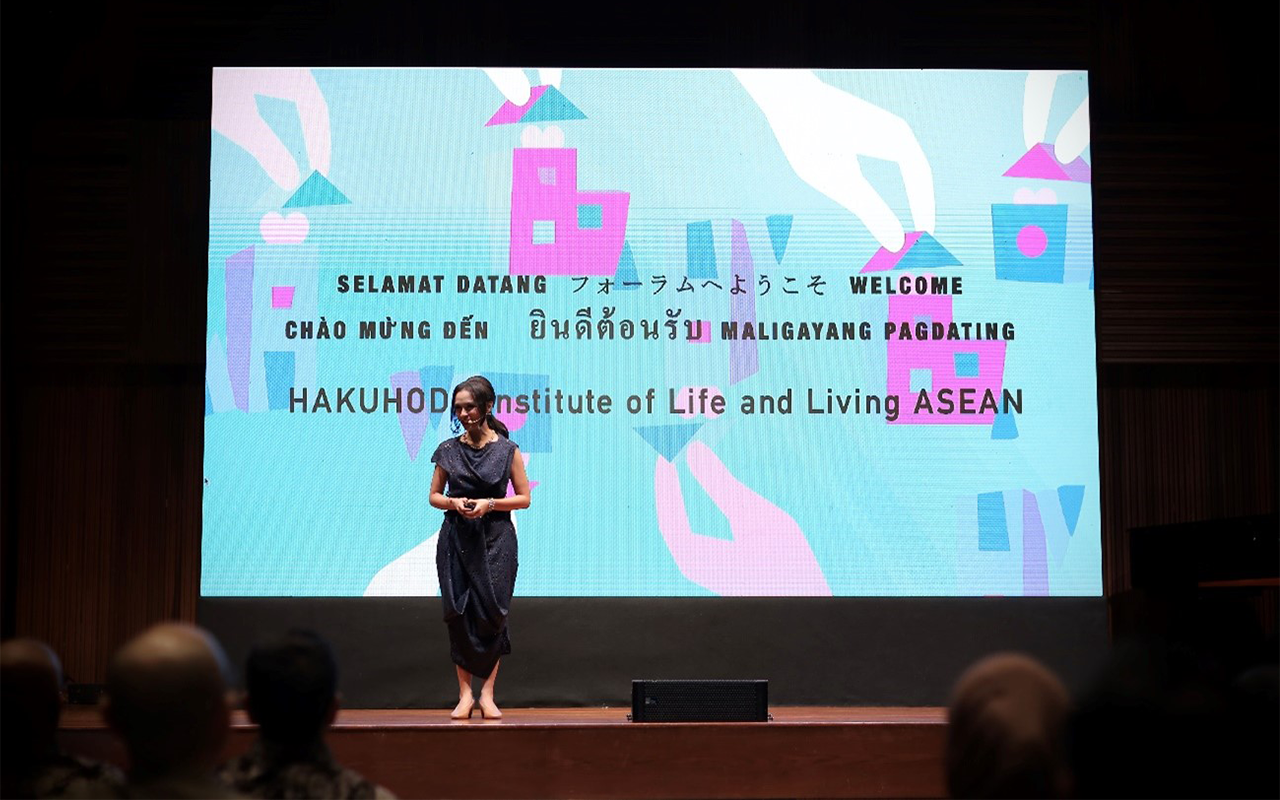
Q: What is Hakuhodo Institute of Life and Living ASEAN (HILL ASEAN) and what is its mission?
ATTAMIMI: HILL ASEAN studies the beating heart and soul of ASEAN society to obtain a deeper understanding of sei-katsu-sha*—Hakuhodo’s term for the holistic person—for the benefit of our clients. In a world where data is everywhere, it can still be difficult to fully grasp sei-katsu-sha. Yet without a clear-eyed view of the sei-katsu-sha we are addressing, we can end up continuously chasing the next marketing trend but never quite move their hearts. HILL ASEAN embodies the Sei-katsu-sha Insight philosophy, which is crucial for modern marketing. While big data is valuable for understanding sei-katsu-sha, it’s merely a fraction, revealing only a partial picture. We take a unique holistic view of societal and generational insights.
Why focus on ASEAN and conduct regional studies? Because by understanding what’s happening in neighboring countries, we can also learn more about ourselves as a society—the things that make us unique and the things that we share. By understanding each country’s uniqueness, we can leverage cultural and custom differences that shape societal mindsets and behaviors to create more engaging and relevant marketing strategies whether for single-country or regional campaigns.
Q: How long have you been part of HILL ASEAN?
ATTAMIMI: I joined HILL ASEAN as a founding member in 2014. Being a part of HILL ASEAN is truly like a breath of fresh air to me. It’s where I meet like-minded thinkers from across Southeast Asia who share the same obsession for understanding the intricacies of how and why people behave. If outsiders listened to our conversations, they might think we are overthinkers. But that’s why HILL ASEAN is so dear to me. It’s the place I can channel my investigative curiosity and curiosity about human psychology.
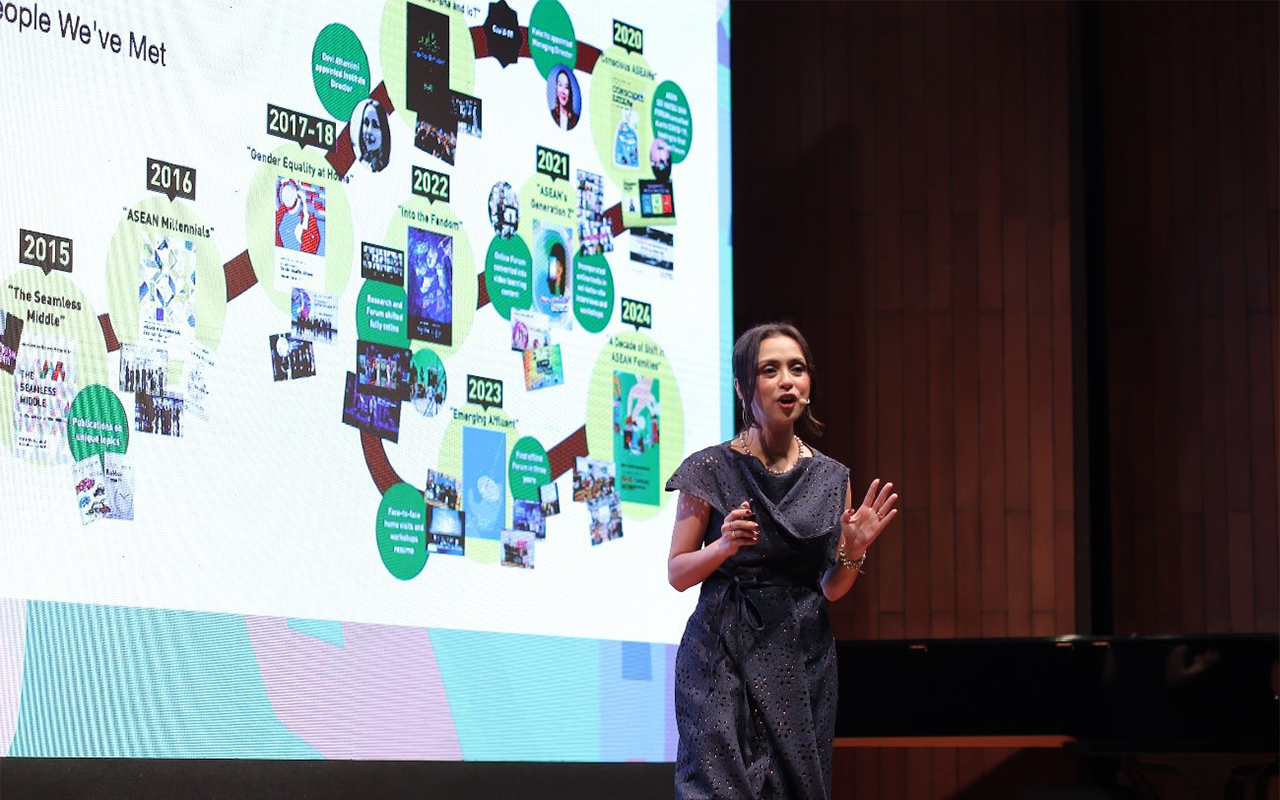
Q: How is the research conducted and what makes the findings unique?
ATTAMIMI: We do back and forth synthesizing between complex data and human desires, which are even more complex than data. What makes HILL ASEAN unique is the way our home visit interviews are conducted. After formulating a hypothesis, we go into the field, knock on people’s doors, and get into the minds and hearts of sei-katsu-sha by asking them to share their stories. In the heart of their homes, we decode their hidden aspirations. We then put our findings to the test with a quantitative survey, solidifying our understanding of sei-katsu-sha.
Q: Why is this year a special one for HILL ASEAN?
ATTAMIMI: This year is special because it’s the 10th anniversary of HILL ASEAN’s founding. For me, this anniversary doesn’t just mark the successful completion of the tenth in our collection of studies. It is also a celebration of all the wonderful people we’ve met across Southeast Asia. Over the years, we’ve observed over 50,000 people and visited more than 400 households. We owe so much to the individuals we have had the privilege of observing, for their role has been pivotal in HILL ASEAN’s decade-long journey to this point.
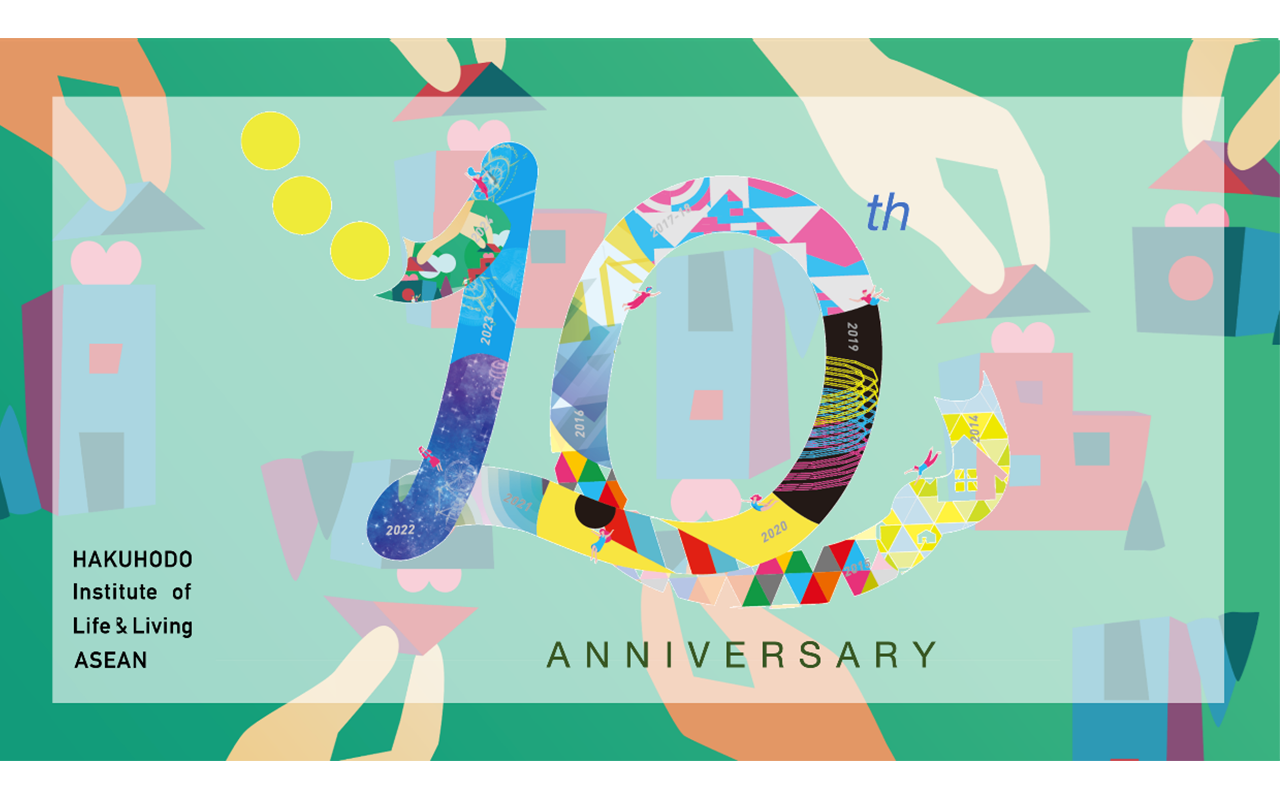
Q: What was the response from the attendees of the HILL ASEAN SEI-KATSU-SHA FORUM held in Indonesia in June?
ATTAMIMI: This year’s FORUM holds a very special place in my heart because it marked the first time the world premiere was held in Jakarta, Indonesia. Previously, we’ve always launched our research findings in Bangkok, Thailand and conducted roadshows across HILL ASEAN member countries. This year we wanted to do something different and invited leaders from across the ASEAN region, as well as clients in Indonesia, to gather in Jakarta for the global launch. Overall, the FORUM was received very well, with many attendees sharing how insightful they found the presentation and how impressed they were with the level of hospitality. We designed the FORUM to match the theme of our 10th anniversary study which, like our inaugural study, was about the ASEAN family. We wanted to create an atmosphere for our guests that embodied the warmth of being surrounded by family while they listened to the findings.
Q: Can you share key findings of the Indonesian study?
ATTAMIMI: Indonesian families are what we termed “Devoted Weavers.” They intertwine tradition with modernity and blend the perspectives of parents and children and males and females to create a unique and resilient tight-knit family fabric, with spirituality/religion at its core. There are three key characteristics to this family type. First, their connection style. Indonesian families are shifting toward a “Collective Family Alliance,” where parents increasingly empower their children to make their own decisions beyond traditional norms. One in four Indonesian families believe their children have equal or even greater authority in decision-making, reflecting a move from a top-down approach to a collaborative partnership. This approach emphasizes open communication and treats children as partners, fostering a more positive and innovative family dynamic.
This leads to the second characteristic, the dynamic of marriage and children. “Respectful Codependency” emphasizes mutual support and acknowledges the important roles of all family members, promoting a balanced and collaborative family dynamic. Over three-quarters of Indonesian parents expect their children to be self-reliant, aiming to raise them as righteous, law-abiding citizens and faith-keepers. Additionally, parents are authoritative yet also rely on their children for future care, reflecting a reciprocal relationship.
The third characteristic is that Indonesian parents view their parenting style as progressive, blending traditional values with modern approaches. They approach parenting like building a startup, experimenting with modern methods while adhering to religious norms. Compared to those of other ASEAN countries, Indonesian parents are more open to external resources, such as social media, for parenting tips and community interaction, and they also draw inspiration from public figures. The role of fathers is becoming more significant, supported by government, community, and religious leaders. As a result, Indonesian parents exhibit a dynamic pattern in experimenting with their parenting methods, leading to a style we call “Experimental Syncretic Parenting.”
This whole new concept marks a shift in family dynamics from a single decision-maker—typically either mom or dad—to multiple decision-makers, including children and other family members who influence decisions. To navigate this complexity, H+ Indonesia has introduced H+ Hyper-Personalization—a solution designed to enhance marketing focus through hyper-targeting. Our approach utilizes the 4C data-weaving method, which takes into account community, context, culture, and charisma.
For instance, Experimental Syncretic Parenting merges traditional and modern practices. By combining Hyper-Personalization with Predictive AI, we can predict future behaviors based on parenting styles, enabling brands to act as “co-parents” and contribute to shaping children’s futures through informed support and guidance.
In a world where family members often live apart or in different cities, staying connected can be challenging. Family on Demand, a concept developed by H+, would address this by offering a centralized, personalized family platform. This hub would enable families to remain connected, send gifts, and even print photos offline, all tailored to their specific needs and preferences.
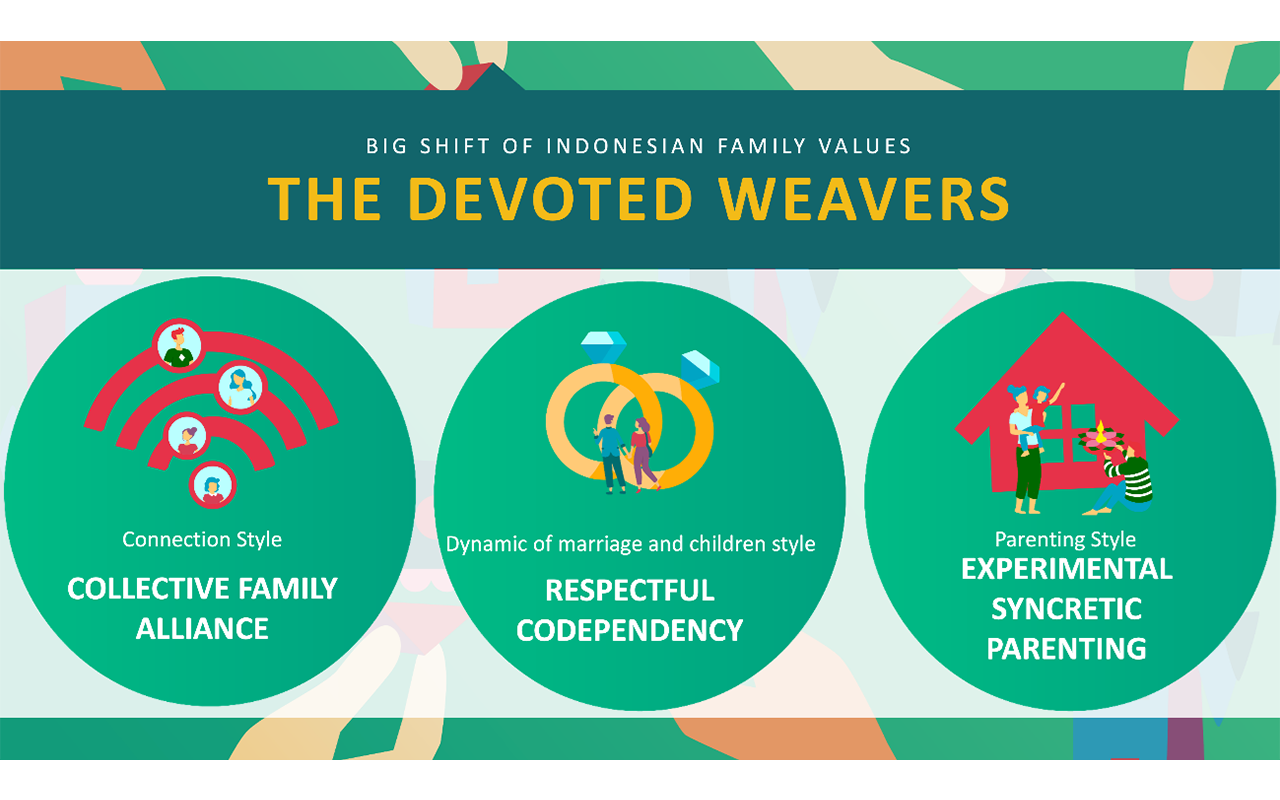
I hope that by sharing this new model of family meaning, brands can make better and more informed decisions. On a personal level, I also hope this serves as a reference for families to select values and practices that will benefit their own unique family situations.
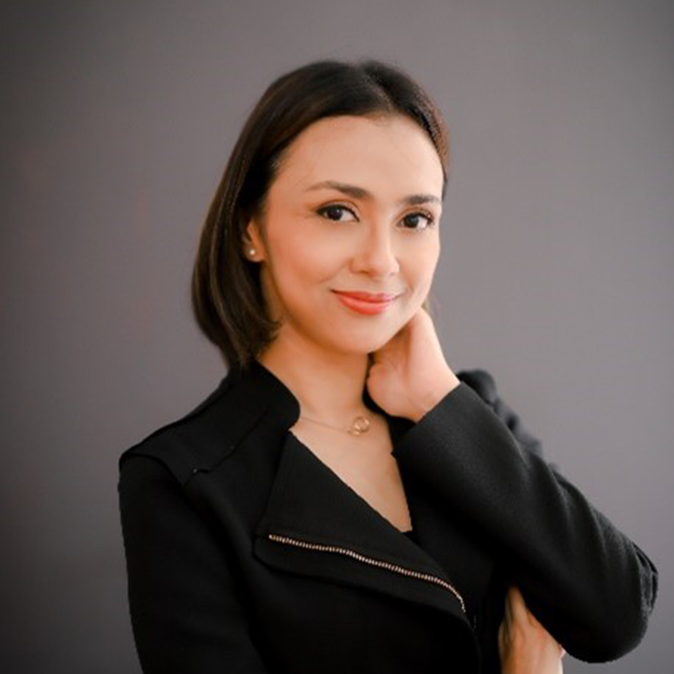
* “Sei-katsu-sha” is a term we use to describe people not simply as consumers, but as fully rounded individuals with their own lifestyles, aspirations and dreams.













